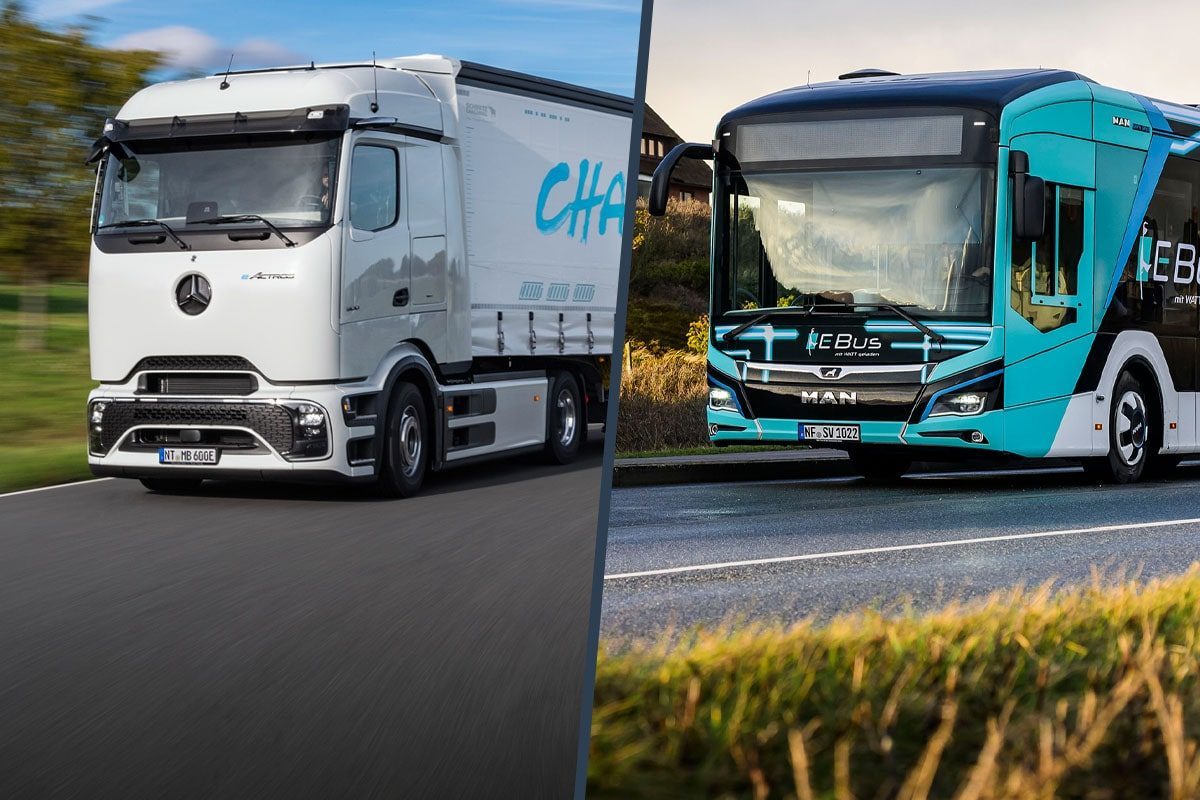
Germany no longer subsidises electric trucks and buses
That means, just like for electric cars, Germany has cut funding prematurely. A spokeswoman for the Federal Ministry for Digital and Transport (BMDV) told electrive in response to an enquiry that not all funding programmes can be continued to the planned extent due to the necessary budget consolidation and the focus on essential investments. “That also includes the promotion of climate-friendly commercial vehicles (KsNi). The approved projects in the guideline will be fully financed based on the 2024 budget. There are no funds available for a new call for funding.”
The spokesperson made a similar statement about bus funding: “The funding of alternative drive systems for buses in passenger transport cannot be continued to the same extent as before. However, the approved projects’ funding is also guaranteed here based on the 2024 budget.”
The electric truck subsidy lasted only two funding rounds, and the current subsidy programme for electric buses merely three (for vehicle procurement). The ministry spokeswoman emphasised that the government will focus on expanding the refuelling and charging infrastructure for measures financed by the German Climate and Transformation Fund (KTF). “Around 1.8 billion euros are available. These investments are necessary to create the conditions for the ramp-up of climate-friendly vehicles. The major projects include the Deutschlandnetz [German charging network], which will ensure a minimum of EV charging stations in certain regions and along motorways, and the development of an initial charging network for electric trucks.” She also pointed out that there are further subsidies for climate-friendly vehicles and refuelling and charging infrastructure from the federal states and local authorities.
It has been evident since the initial budget agreement in mid-December that the above-mentioned climate budget for 2024 would have to be cut by over 12 billion euros, meaning that funding for buses, battery research, charging infrastructure and commercial vehicles with alternative drive systems was up for debate. In short, subsidy programmes for the ramp-up of electric vehicles were especially at risk of being cut.
As a result, the premiums for private buyers of electric cars were cancelled almost overnight. An overview of the Climate and Transformation Fund published by the German government shortly afterwards showed that the subsidies for the construction of refuelling and charging infrastructure will remain largely intact in 2024. At first, there was talk of €1.92 billion, then later of the €1.85 billion mentioned by the spokeswoman. The project fund also includes resources for the fuelling and charging infrastructure in the commercial vehicle sector. However, it is also the only funding left over for the truck and bus industry.
The German government established the funding programme for climate-friendly commercial vehicles in 2021 as one of the main levers to drive electrification in the truck sector. However, it was already apparent in September 2023 that funding for the 2024 financial year was largely tied up due to the high demand. The second round was effectively spilling over into the period of a possible third round. The budget for further funding calls had thus been uncertain for some time.
As part of the programme, the German government paid out 1.149 million euros in 2022 for 292 approved applications from the first round in 2021 and 72.079 million euros in 2023 as of 8 December 2023. For 1,436 approved applications from the second round in 2022/23, the government released 20.032 million euros in 2023. However, the figures are not yet final, as funds are still being distributed for approved applications. According to government statistics, 91 electric trucks have been funded so far in 2021 (including 50 H2 and 41 BEV trucks), 1,133 electric trucks in 2022 (including 167 H2, 4 (PHEV) and 962 BEV trucks) and 7,119 electric trucks in 2023 (including 358 H2, 5 PHEV and 6,756 BEV trucks).
And in the bus sector? The call for the third round of funding ran from June to September 2023. However, only 23 transport companies had gotten a green light for funding by November 2023, while 140 transport companies have already received a rejection. The funding programme was to continue until 2025.
So far, the government has approved grants under the directive for around 4,000 buses with alternative drive systems. However, this does not include all vehicles approved in the third round of funding. In addition, the government also mentions around 1,550 vehicles from previous funding programmes – primarily from the 2018 directive to promote the purchase of electric buses in public transport.
Translation by Carla Westerheide




1 Comment